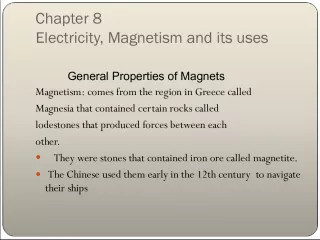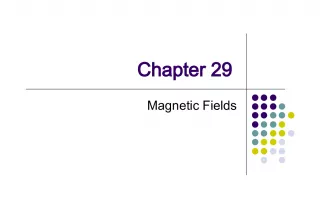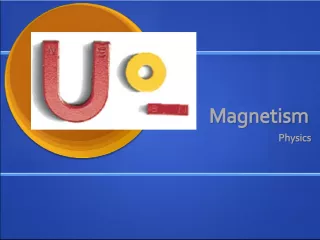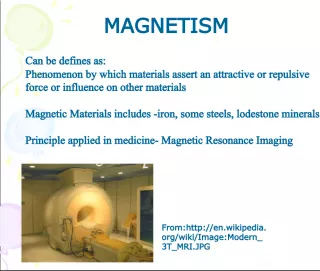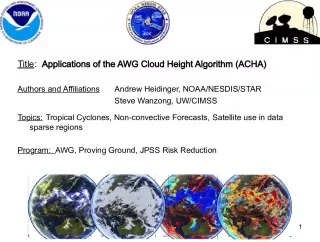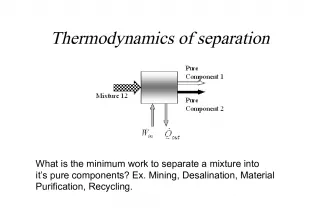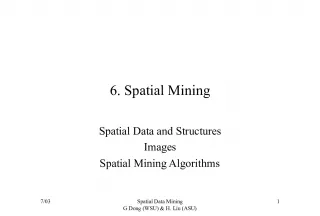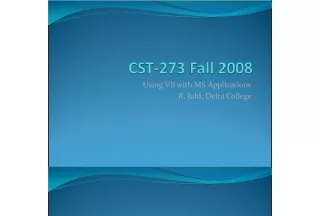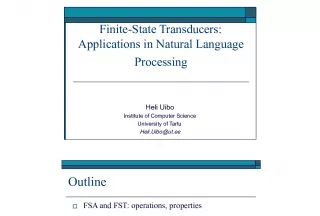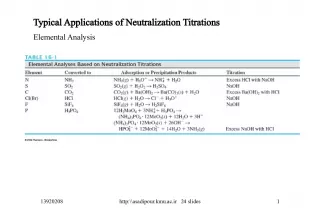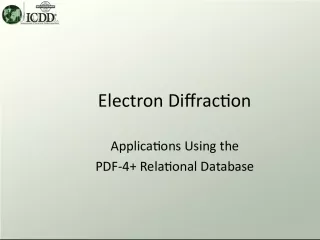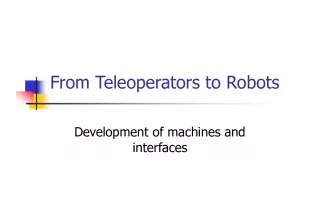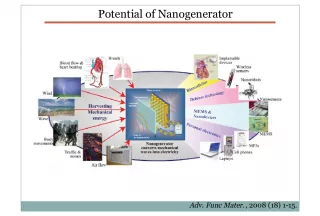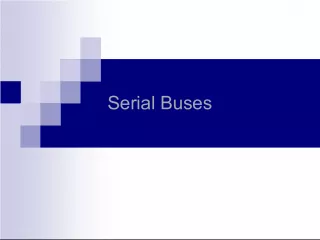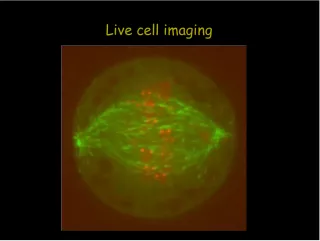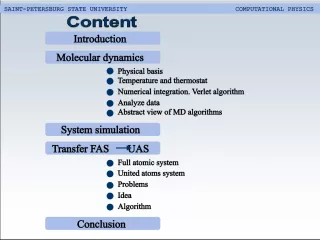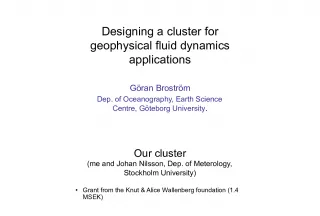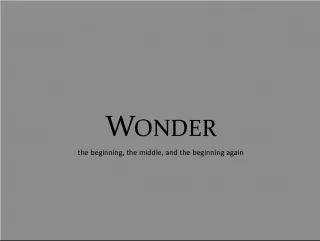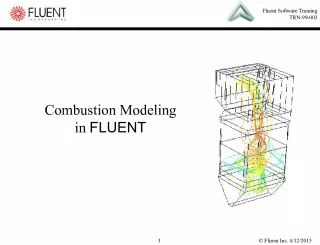Exploring Magnetism and its Applications
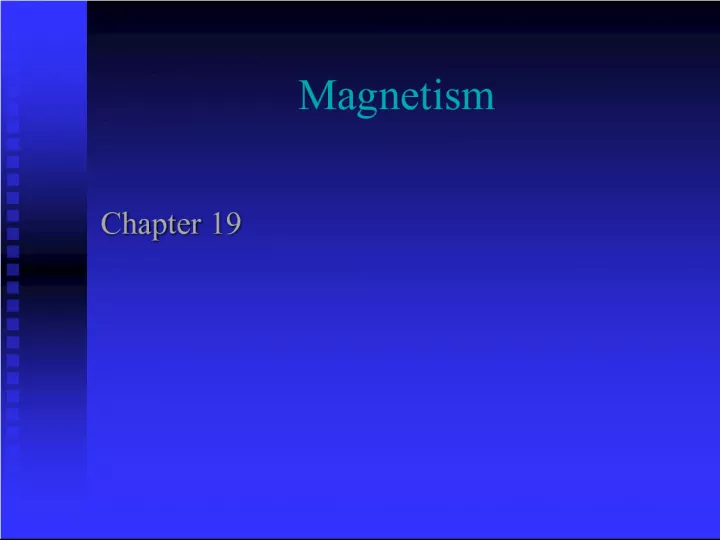

This article delves into the chapter on magnetism, covering important concepts such as the production of magnetic fields by charges in motion and how magnetism affects charges moving through them. It also showcases various applications of magnetism including loudspeakers, meters, electromagnets, recording devices, computer disks, and MRI.
- Uploaded on | 3 Views
-
 riley
riley
About Exploring Magnetism and its Applications
PowerPoint presentation about 'Exploring Magnetism and its Applications'. This presentation describes the topic on This article delves into the chapter on magnetism, covering important concepts such as the production of magnetic fields by charges in motion and how magnetism affects charges moving through them. It also showcases various applications of magnetism including loudspeakers, meters, electromagnets, recording devices, computer disks, and MRI.. The key topics included in this slideshow are . Download this presentation absolutely free.
Presentation Transcript
1. Magnetism Chapter 19 Chapter 19
2. Introduction Applications involving magnetism Applications involving magnetism Loudspeakers Loudspeakers Meters Meters Electromagnets Electromagnets Recording devices Recording devices Tapes Tapes Computer disks Computer disks MRI MRI
3. Important Concepts All magnetic fields are produced by charges in motion. All magnetic fields are produced by charges in motion. Magnetic fields will affect charges moving through them. Magnetic fields will affect charges moving through them.
4. Magnetic Poles Magnets have poles. Magnets have poles. North North South South 191 191
5. The Law of Poles Like poles repel, unlike poles attract. Like poles repel, unlike poles attract.
6. Can a magnet have only one pole? Can a magnet have only one pole? No No Can a magnet have more than two poles? Can a magnet have more than two poles? Yes Yes
7. Effects of Cutting? If a magnet is cut in half, lengthwise, will the two halves attract or repel? If a magnet is cut in half, lengthwise, will the two halves attract or repel? Repel Repel If a magnet is cut in half, across the width, will the two halves attract or repel? If a magnet is cut in half, across the width, will the two halves attract or repel? Attract Attract 36-2 36-2
8. Magnetic Induction Magnetism may be induced in iron and other materials. Magnetism may be induced in iron and other materials. Stroking with a permanent magnet Stroking with a permanent magnet Heating and then cooling in a strong magnetic field Heating and then cooling in a strong magnetic field
9. Natural Magnets Magnetite (lodestone) Magnetite (lodestone) A naturally occurring magnetic material A naturally occurring magnetic material Produced by heating and then cooling in the earth’s magnetic field Produced by heating and then cooling in the earth’s magnetic field
10. Soft Magnetic Materials Iron Iron Easily magnetized Easily magnetized Weakens quickly Weakens quickly
11. Hard Magnetic Materials Cobalt and nickel Cobalt and nickel Difficult to magnetize Difficult to magnetize Stays strong longer Stays strong longer
12. Magnetic Fields All charges are surrounded by an electric field. All charges are surrounded by an electric field. Charges in motion are surrounded by a magnetic field. Charges in motion are surrounded by a magnetic field.
13. Magnet Fields Field descriptions must include: Field descriptions must include: Magnitude (strength) Magnitude (strength) Direction Direction The direction that an isolated north pole would move when placed in the field The direction that an isolated north pole would move when placed in the field 19.2, 192 19.2, 192
14. Magnetic Field Lines Magnetic field lines can be shown by using small iron filings Magnetic field lines can be shown by using small iron filings 79 79
15. Magnetic Field Of The Earth North-seeking and south seeking poles North-seeking and south seeking poles Compasses Compasses Geographic poles vs. magnetic poles Geographic poles vs. magnetic poles Location (north magnetic is in Canada) Location (north magnetic is in Canada) Dip angle Dip angle Magnetic declination Magnetic declination The angle between true north and magnetic north The angle between true north and magnetic north 19.4 19.4
16. What is believed to be the source of the earth’s magnetic field? What is believed to be the source of the earth’s magnetic field? The earth’s magnetic field reverses every few million years The earth’s magnetic field reverses every few million years Evidence? Evidence?
17. Animals and Magnetism Some animals use the earth’s magnetic field for navigation. Some animals use the earth’s magnetic field for navigation. Anaerobic bacteria Anaerobic bacteria Lobsters Lobsters Birds Birds
18. Magnetic Forces A charge experiences a force when moving through a magnetic field. A charge experiences a force when moving through a magnetic field. Maximum force occurs when the motion is perpendicular to the field. Maximum force occurs when the motion is perpendicular to the field. Zero force occurs when the motion is parallel or antiparallel to the field. Zero force occurs when the motion is parallel or antiparallel to the field. 19.5 19.5
19. Factors Influencing Magnetic Force Which factors will determine the magnitude of the force on a charge that is moving through a magnetic field? Which factors will determine the magnitude of the force on a charge that is moving through a magnetic field? Magnetic field strength Magnetic field strength Quantity of charge Quantity of charge Velocity of the charge Velocity of the charge Direction of the velocity Direction of the velocity
20. Magnetic Symbols New Symbols New Symbols Magnetic force (F) Magnetic force (F) Magnetic field strength (B) Magnetic field strength (B) Angle (measured between v and B) Angle (measured between v and B) Formula Formula
21. Magnetic Field Strength Magnetic field strength units Magnetic field strength units SI SI Tesla (T) or (1 Wb/m 2 ) Tesla (T) or (1 Wb/m 2 )
22. Magnetic Force Formula Formula Right Hand Rule Right Hand Rule 19.6/19.7, 198 19.6/19.7, 198
23. Magnetic Force On A Current Carrying-Conductor A current-carrying wire will experience a force when placed in a magnetic field. A current-carrying wire will experience a force when placed in a magnetic field. Symbols for current direction Symbols for current direction Head Head Tail Tail 26 26
24. Magnetic Field Around a Conductor
25. Magnetic Force On A Straight Wire Formula Formula There is no force when the current in the wire is in the same or opposite direction of the field. There is no force when the current in the wire is in the same or opposite direction of the field.
26. Magnetic Force Applications Stereo speaker Stereo speaker Voice coil Voice coil Electromagnetic pump Electromagnetic pump No moving parts No moving parts Possible heart replacement Possible heart replacement Magnetohydrodynamic propulsion (MHD) Magnetohydrodynamic propulsion (MHD) 199 199
27. Torque On A Current Loop A torque is exerted on a current-carrying loop when it is placed in a magnetic field A torque is exerted on a current-carrying loop when it is placed in a magnetic field Applications Applications Galvanometers Galvanometers Motors Motors Generators Generators 19.15, 19.17, 200, 201 19.15, 19.17, 200, 201
28. Torque formula Torque formula Shape of coil is not important Shape of coil is not important Angle is measured between B and the axis of the coil Angle is measured between B and the axis of the coil Number of Turns (N) Number of Turns (N)
29. Motion Of A Charged Particle In A Magnetic Field If the velocity is perpendicular to the field, the magnetic force is always toward the center of the circular path. If the velocity is perpendicular to the field, the magnetic force is always toward the center of the circular path. Centripetal acceleration Centripetal acceleration No change in speed No change in speed Direction change Direction change 195, 80, 19.19 195, 80, 19.19
30. Curved Motion in a Magnetic Field Radius of curvature formula: Radius of curvature formula: 197 197
31. QUESTIONS 1 – 8 1 – 8 Pg. 654 Pg. 654
32. Electricity and Magnetism Oersted lecture Oersted lecture An electric field deflected a nearby compass needle An electric field deflected a nearby compass needle This was the first realization of a link between electricity and magnetism This was the first realization of a link between electricity and magnetism
33. Magnetic Field Of A Long Straight Wire Oersted demonstration Oersted demonstration Compasses surrounding a current- carrying wire Compasses surrounding a current- carrying wire The magnetic field lines form circles around the wire. The magnetic field lines form circles around the wire. 19.23a,b 19.23a,b
34. Another Right-Hand Rule The Right-Hand-Rule for a current The Right-Hand-Rule for a current Indicates the directions for current, magnetic field , and force Indicates the directions for current, magnetic field , and force 19.23a 19.23a
35. Magnetic Field Strength Formula for the magnetic field strength due to a current in a long straight wire Formula for the magnetic field strength due to a current in a long straight wire o is the permeability of free space o is the permeability of free space o = 4 x 10 -7 T . m/A o = 4 x 10 -7 T . m/A
36. Magnetic Force Between Two Parallel Conductors Two parallel current-carrying conductors will exert a force on each other. (very important) Two parallel current-carrying conductors will exert a force on each other. (very important) 19.28 19.28
37. Defining The Ampere Definition of the Ampere (1 A) Definition of the Ampere (1 A) Two long parallel wires Two long parallel wires One meter apart One meter apart Same current in each Same current in each Force/length = 2 x 10 -7 N/m Force/length = 2 x 10 -7 N/m Remember: Remember: 1 Ampere = 1 Coulomb/second 1 Ampere = 1 Coulomb/second
38. Magnetic Field Of A Current Loop A current loop can increase the strength of the magnetic field. A current loop can increase the strength of the magnetic field. Current loops have poles. Current loops have poles. 203, 19.28, 19.31 203, 19.28, 19.31
39. Magnetic Field Of A Solenoid A solenoid is made up of several closely spaced loops. A solenoid is made up of several closely spaced loops. Electromagnets are solenoids Electromagnets are solenoids Applications Applications Solenoids have poles Solenoids have poles Field lines are nearly parallel within Field lines are nearly parallel within 204, 19.33, 19.32, 158, 159, 207 204, 19.33, 19.32, 158, 159, 207
40. Formula for the magnetic field of a solenoid: Formula for the magnetic field of a solenoid: n = N/ L n = N/ L
41. Causes of Magnetism Orbital motion produces magnetic fields. Orbital motion produces magnetic fields. These fields tend to cancel out. These fields tend to cancel out.
42. Electron spin produces magnetic fields Electron spin produces magnetic fields In most substances, electron pairs have opposite spins which cancel. In most substances, electron pairs have opposite spins which cancel. Not in iron, nickel and cobalt Not in iron, nickel and cobalt
43. Magnetic Domains Orientation Orientation Alignment Alignment Growth Growth
44. Ferromagnetic Materials Ferromagnetic materials are able to be magnetized. (permanent magnets) Ferromagnetic materials are able to be magnetized. (permanent magnets) Magnetic cores are used in electromagnets. Magnetic cores are used in electromagnets. 206 206
45. Questions 10 - 12, 14 - 17 10 - 12, 14 - 17 Pg. 655 Pg. 655
